“I didn’t think I would get to make films in Scotland”: An interview with Run’s star Marli Siu
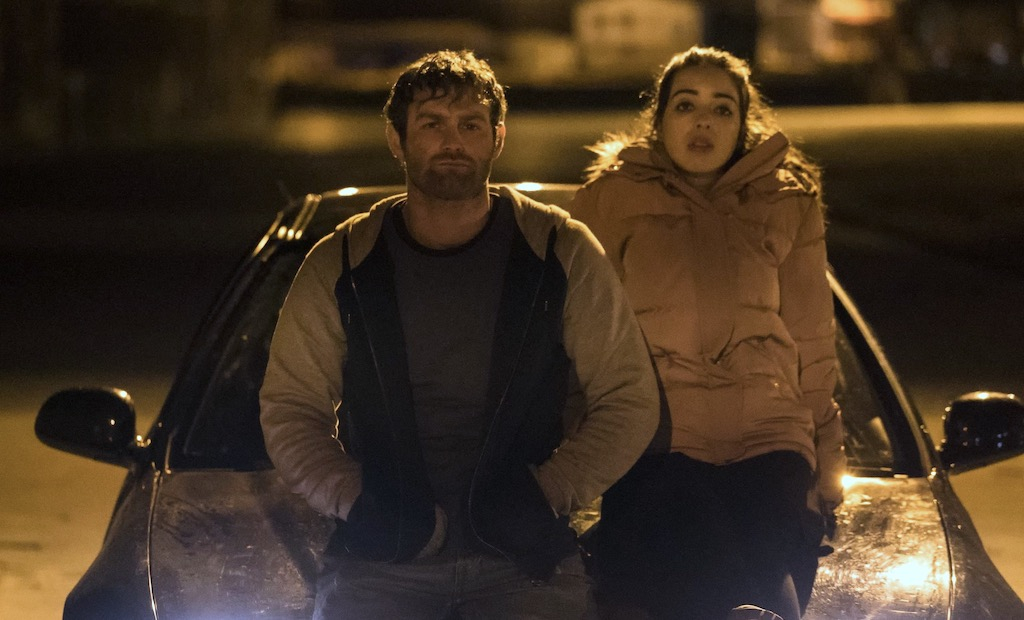
Set in the north-east Scottish town of Fraserburgh, Run – written and directed by BAFTA-nominated Scottish filmmaker Scott Graham (Shell) – follows Finnie (Mark Stanley), a father in his thirties who, weighed down by the stresses of life, decides to escape into the night to relive his teenage dreams of street racing, planning to finally run from the small town he’s known all his life.
Inspired by the music of Bruce Springsteen, Run is an intimate and uplifting portrait of the hopes and dreams of a father and his son. Told with a distinctive Scottish flavour, Run also stars Amy Manson, Anders Hayward, and Marli Siu. Following the film’s screening at Glasgow Film Festival, we sat down with Siu and spoke about her previous film Anna and the Apocalypse, accents, and the Scottish film industry.
In the film you play Kelly. Can you talk a bit about who she is and how you got involved in the project?
Sure. Kelly is Kid’s [Hayward] girlfriend, and Kid is Finnie’s son. I got involved in the project when I got an audition. Scott was the director and writer, and I was really excited because I’d seen Shell and it was one of my favourite films. You know when you have those bucket lists of people you’d love to work with? Scott was genuinely one of those people that I just thought, at some point in my career, I’d just love to work with. I couldn’t believe I was only a year into professionally working; I jumped at the chance to audition.
It was a brilliant audition process. Not a lot of people do this, but Scott had got actors to come into the audition so you were reading with another actor instead of a casting director. It meant you could give a really good performance, because you had another actor to bounce off. He even set the audition up like we were in a car where he’d put down two chairs. After I auditioned I came back and did a chemistry test with someone, and the last time I came in and tested with Mark – we did the scene on the breakwater. And then I found out that I got it and I was over the moon. It was one of those projects you would do anything to work on. I was really, really excited to work on it.
What was it like working with Mark? In the film he’s really intense – and you were in a car with him for most of the film. Was that scary?
Oh my god! It’s funny that you called Mark “intense”. Mark is the least intense guy I’d ever met. That’s a testament to what a brilliant actor he is. It was probably more annoying for Scott having to listen to us chatting and chatting – we just wouldn’t shut up. For resets a lot of the lights and cameras were set up on the car. If we were to leave the car, they would have to set it up again – it was easier just not to open the doors. In between takes we just stayed in the car. We just chatted the ear off each other. We’d do funny little quizzes on our phones and things to keep ourselves busy between takes. It was an absolute joy to get to work with Mark.
This was only my second film and I had only just really started working. I really learned so much from Mark. As an actor, I just drank in everything that he was doing and talking about. He was the nicest person on set. There’d be runners asking “Can I get you a cup of tea?” and Mark’s like “Can I get you a cup of tea?” That was the kind of person I wanted to be and I’m so glad I got to work with him really early in my career as well to have such a great example of a really talented actor.
It’s amazing that this is your second film. You’ve been nominated for so many awards, you were in Anna and the Apocalypse, and now you’re in two films at the same festival. You must have been incredibly busy.
It’s just been a really great time. Anna was the first and then I did Run and Our Lady in the same year – which was 2018, I think. I did Run first and I was taping for Our Lady as well while I was filming. My stuff in Run was all night shoots, all the stuff in the car, so I actually taped for Our Lady at like six in the morning when I got home from my night shoot and I had to send in this tape where I had to sing. We were staying in this little B&B and I had to sing really quietly so I didn’t wake anyone up.
Do you think that Anna and the Apocalypse helped launch you to get to Run, or was this more of a natural progression for you?
I guess it was helpful. I don’t think Scott had seen Anna because it didn’t come out until after I’d filmed Run, but I guess it’s helpful for any director to see on your CV that you’ve done something so they know you have an understanding of what it’s like on set. I don’t know, I guess it may have helped, but I think Scott and the brilliant team of producers behind him were supportive of getting the people they wanted to be in the film. I think that helps with smaller films like this; it feels a lot more intimate.
You and Mark are getting more recognition, especially in Scotland. Anna’s starting to get its own cult following.
That’s lovely, isn’t it? Making Anna was the best because we just ran around that school like a bunch of kids. The hope with Anna, because it was such an indie, is that it would find its audience in time. It’s that horror, comedy, musical genre, so hopefully when people who like that kind of stuff see it they’ll love it. I think the people who see it do really like it.
Anna was made by a Scottish director as well
Yeah. John McPhail.
How do you feel the Scottish film industry has evolved in recent years?
I just came out of studying when I did Anna, so I didn’t have that much knowledge of the Scottish film industry. To be honest, when I was younger I thought I would just have to get a really good English accent because everything on TV or film was English or American. I didn’t really think I was going to be able to work in film in Scotland. Film is what I love primarily. I’ve just been so lucky that films were getting made and that there’s parts for young girls because I really didn’t think I would get to make films in Scotland.
Scottish films can be so different. You have your horror and music, then you’ve got realism and social-realism with Scott, and Our Lady is a big comedy. There’s such a huge amount of talent in Scotland and such a different variety of taste. I think the films, directors, and actors can be as good as England or America. I just hope they keep supporting that because there are so many stories in Scotland to tell.
And Beats as well. I love Beats – Amy [Manson]’s in that. It’s completely different: it’s in black and white, it’s about the rave scene, and there’s incredible acting in it. There’s such a variety of wonderful films. There’s always been great films in Scotland.
It’s funny you said you thought you’d need to do an English accent because in Run you do the broadest Fraserburgh accent.
So Scott had written the film in the dialect, so it had like “fit” and “fir” in it, and he’d written a glossary at the front. It’s not really an accent you can find on YouTube; there’s not a lot of resources online for it. At first I guess I had a rough understanding of it, then when I got cast Scott put us in touch with an actor he’d worked with before, Lillian, and she really helped us. She Skyped with us and when we were in Fraserburgh she did one-to-ones with us. When we got up there, I found that walking around the town and listening to people in cafes was the best way to pick up on the accent.
I also had a friend of a friend who was from there and she would give me little recordings of certain words I was a bit confused on, and I guess we just sort of built the accent from there. I had a bit of fear with the accent because it’s so specific. I don’t think you can do a general Fraserburgh accent.
Before the film came to Glasgow, it premiered at Tribeca and London. How have audiences reacted to the accent outside of Scotland? Have they been able to understand it okay?
We premiered in New York, which is the furthest you can get from the accent. It had subtitles in New York. I think they just thought it was best for Americans. It’s really interesting watching it with subtitles and without; I think both are good experiences. With foreign language films like Parasite, subtitles don’t stop you enjoying the film. Run is in English, but you can make the case whether it needs subtitles or not. In New York, people really liked it. In London we played it without subtitles, but from what I heard it takes people a minute to tune their ear.
A bit like getting used to the language in The Lighthouse?
Totally. And it’s not a film with a lot of dialogue either. The way Scott tells the story through his shots and atmosphere, even if you do miss words, you still know what’s happening.
In the film, your character goes through this huge emotional spectrum where she can go from a really vulnerable state to jumping around outside the car and running to the chip shop. Did you need to do a lot of preparation to get into the right state or do you think it came naturally from your chemistry with Mark on set?
Prep-wise for this film I tried not to do too much on each specific scene because it flows all together in this car journey and because Mark and Scott are so brilliant at giving you stuff in the moment. The scene where she talks about how she’s loved everyone she’s been with, I think she’s at her most vulnerable at that point.
I don’t think I was nervous, but it really helped that it was at night and we were in a car. It’s quite dark, so you don’t feel exposed. When you get upset or get vulnerable you don’t feel particularly embarrassed or watched because the way they filmed it was so private. I didn’t feel like I needed to get into any state because it was really easy to get there in that car and with what Mark gave you. It made it really easy.
The jumping up and down outside when we had the car race, we tried loads of different versions. Scott lets you try and play around and Mark’s really good at being like “just do this, just try it”. This film was really interesting to watch because, out of everything I’ve ever done, I had no idea how it was going to come out because Scott and Mark let you try so many different things: there’s versions where you’re screaming, there’s versions where you’re quiet, there’s versions where you’re crying. Mark wanted to give Scott the most beautiful cutting room floor possible so even what he cut would be good. He knows exactly what he wants and we had the freedom to do so many different versions. In that sense as well, you don’t feel that you have to get it perfect in the first take because you know you’ll be able to try different things. It takes the fear and the pressure away of feeling you have to do it a certain way – if you just let it happen, then you don’t need to build it up too much.
Is there anything that was cut you wish was in the final film?
There’s so many things. It’s tricky with a film because when you film it, in your head, it’s like remembering a childhood memory: it’s so different to when you actually watch it. Also I don’t like watching what I’ve just done on camera because I think it makes you a bit self-conscious. It’s always going to be a bit different to how you imagined it.
I love what Scott’s done with it. I think that he picked what was needed to tell the story, and that anything else that was enjoyable to do wouldn’t help tell this story.
Music plays a big role in the film. How involved were you in picking the songs Kelly plays in the car?
Scott had written the songs into the script actually. He had Artic Monkey’s R U Mine and I had to learn the words of the Chvrches song because I didn’t know it. I made a playlist for Kelly I could listen to myself to help me figure out what she was into. It’s not set in the past and I genuinely grew up with girls like Kelly so it wasn’t that tricky to know the kind of music she’d listen to. I didn’t really know Bruce Springsteen’s music beforehand, but I think Scott did a good job of balancing the stuff that Finnie and Kate would listen to with the more modern stuff that Kelly and Kid listen to.
Was any of your own music in that playlist?
I guess unconsciously, because it’s what I thought that Kelly would listen to. I put in the stuff that Scott had written in, I looked at what was in the charts and a lot of music that I’d listen to in car rides.
It’s funny, when I met Scott in my first audition I remember telling him what I found really interesting about one of the scenes we were doing was that it reminded me of one of the first proper dates I went on with one of my ex-boyfriends. It was in his mum’s car and we just drove around for a bit. When you’re on a date, the setting of a car means you don’t have to look at each other, it makes it less awkward.
Being in a car with your boyfriend’s dad would be pretty awkward – what would you talk about? But the fact that they’re in this car in the emotional state they’re in when you meet them created this environment where they could sit with each other and find peace for a couple of hours. Listening to music can also help make it less awkward when you’re not speaking, so I thought about what music I listened to back then, too.
In the film, Finnie and Kelly have this pivotal moment about running away together. Do you think that Kelly would have run away with him or do you think she would have always stayed?
When we got to that scene where Finnie and Kelly agree to leave, it was really interesting doing it. It felt like they were kids playing pretend. Compared to the rest of the script, which is so natural and realistic, this felt like such a different tone. And I think it was, for Kelly anyway, a bit of escape from reality for her. I think it was a game of chicken for her. How far is he going to take it? And she doesn’t want to back down – she’s got nothing to lose. The scene when she picks up her stuff is, for me, I thought, a way for her to delay what’s going to happen if they were going to leave. I think even if she did get back in that car and they did drive away, I don’t know how far they would have got.
I know girls like Kelly, and I think the choice to stay in your home town and get married and have children is an absolutely legit and wonderful choice. What better can you do with your life? I think Kelly would be a good mum. I think she’s already grown up quite a lot and her choice to stay in town and start a family doesn’t scare her, she doesn’t see it like a tragedy. That’s what Scott does really well at the end.
Andrew Murray
Run is released on DVD and home download on 25th May 2020. Read our review here.
Read our interview with director Scott Graham here.
Watch the trailer for Run here:

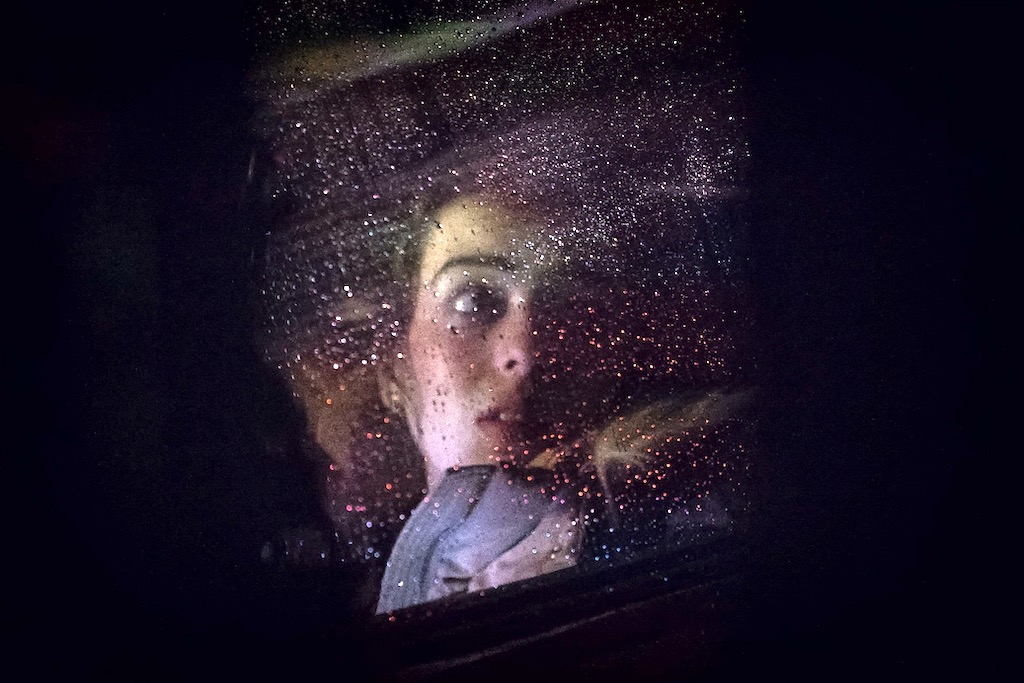
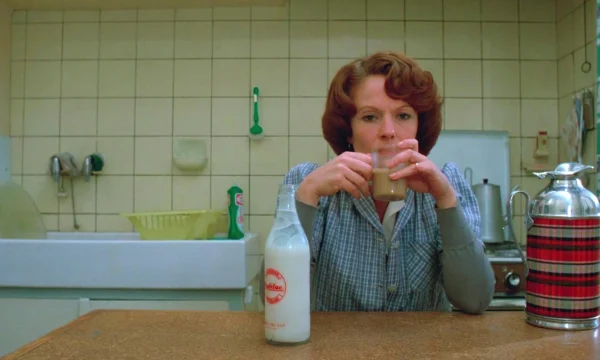
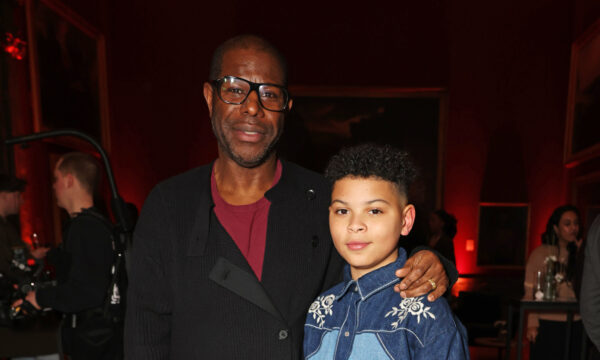
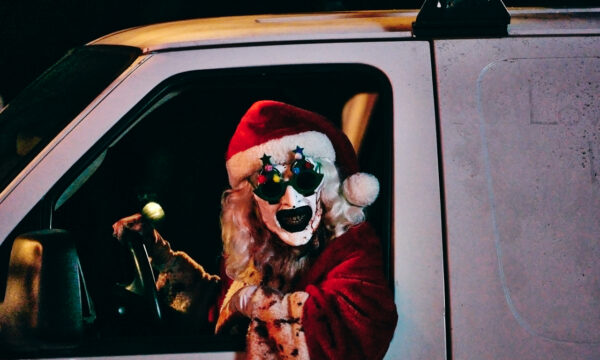
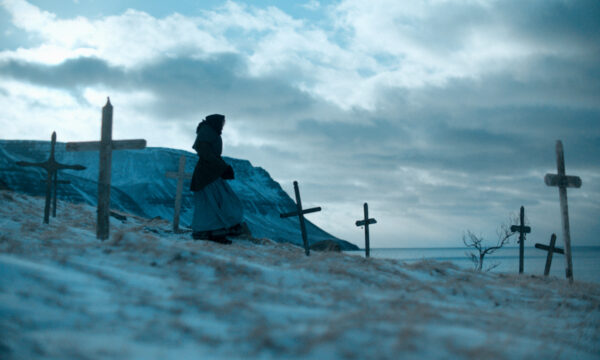
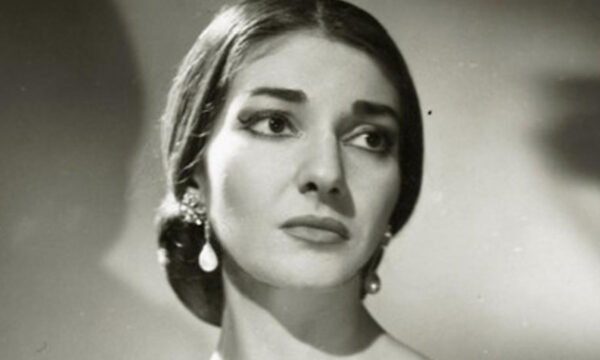
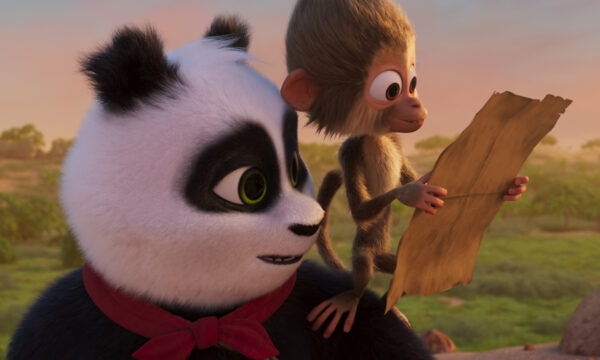
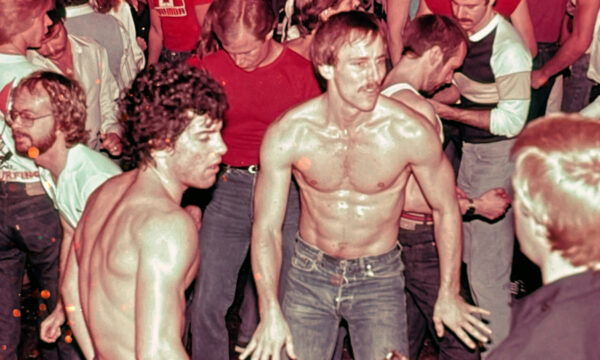
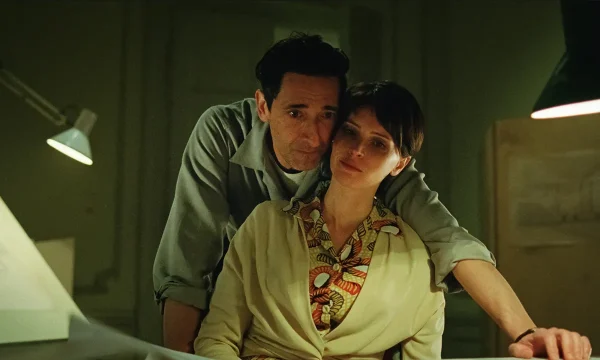
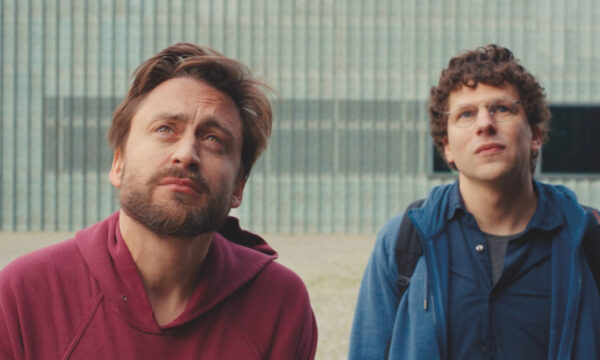








Facebook
Twitter
Instagram
YouTube
RSS